Private Sponsorship of Refugees Program: Stories
Private Sponsorship of Refugees Program: stories

On this page
- Chai: Seeing the world through a different lens
- Wahlay and Daisy: Finding refuge in Thunder Bay
- Norma McCord: Three decades of sponsoring refugees in Ottawa
- Don and Thérèse Smith: Sponsoring refugees - 40 years and 2 provinces
- Bill Temple: Sponsoring Ethiopian Refugees in Winnipeg
- Jasmine Somogyvari: A community sponsoring Liberian Refugees
- Jake and Louise Buhler: Sponsoring refugees in Saskatchewan
- Reverend Arie Van Eek: Sponsoring refugees since 1978
- Jon Isaak: Sponsoring a family after decades in a refugee camp
- Dominique Poulin: Les Marraines solidaires
Chai: Seeing the world through a different lens
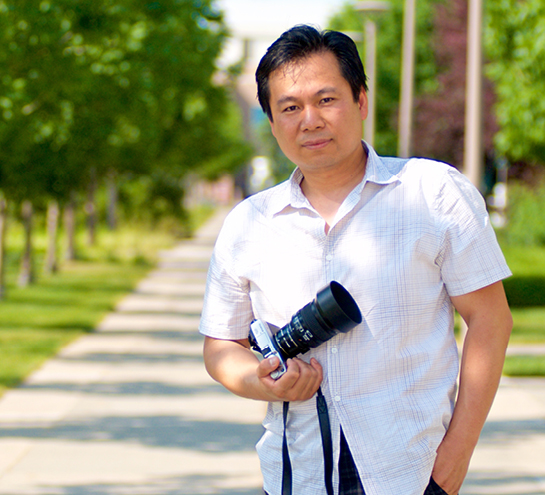
Chai Bouphaphanh was born in Vientiane, Laos, in 1967 and lived there until 1978. Due to the Communist military victory in the Vietnam War, and repercussions in their country, Chai’s parents made the difficult decision to leave. After living in a refugee camp in Nongkhai, Thailand, for two years, Chai and his family were privately sponsored by the Drake Mennonite Church to come to Canada. On a very blustery February 1, 1980, the family arrived at the small town of Drake, Saskatchewan.
It was initially a difficult adjustment to life in Canada, particularly because of the cold weather and new language. Chai says it was sometimes hard to balance his Laotian culture with his new Canadian home, crediting his parents with understanding the need to meld both cultures together. Overall, Chai enjoyed growing up in Saskatchewan, playing hockey in the winter, and tennis and soccer in the summer. “I love the cold weather now!
” he says. Chai is very grateful to the Drake Mennonite Church. “They have been helping us to feel at home since day one.
”
Chai currently works in the IT department and as a product photographer for Drake Meats. He also freelances in photography, frequently volunteers for the Regina Open Door Society, and has done camera work for other organizations such as MacDonald Youth Services in Winnipeg.
Chai’s goal for the future is to continue to make people smile through his passion for photography. To this end, one of his photographs was selected in a National Geographic contest to be included in its library archive of stock photography.
Chai’s family recently celebrated 39 years in Canada. “We are living in the best place in the world. I want to say thank you to Canada for giving us the freedom to live and an amazing place to call home.
”
Wahlay and Daisy: Finding refuge in Thunder Bay
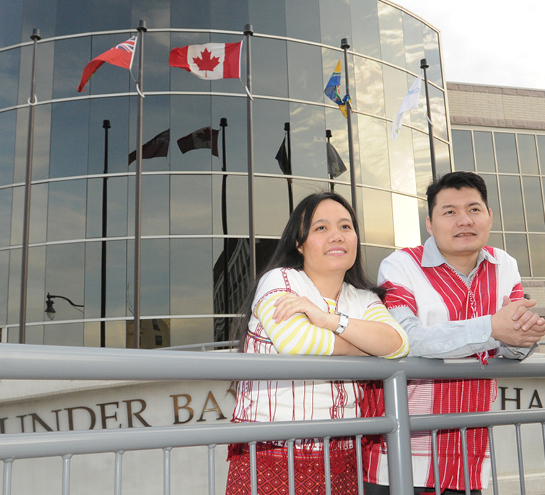
Wahlay Ray and his wife, Daisy Aung, feared they would never escape the sweltering heat of the Mae La refugee camp, one of the largest for Karen refugees straddling the Thai-Burmese border. But today, Wahlay and Daisy have found a new home in the picturesque northern Ontario city of Thunder Bay.
Wahlay and Daisy came to Canada as refugees from Burma in 2002, privately sponsored by the Sleeping Giant Refugee Sponsoring Group and First Presbyterian Church in Thunder Bay. The couple belong to the persecuted Karen minority in Burma. They were forced into a refugee camp after their village was burned to the ground.
Life in the refugee camp was harsh. “Sanitation was very poor and health care was limited,
” says Wahlay. “There is a generation of Karen children who have no knowledge of what lies outside the barbed wire surrounding the camp. They’re like caged birds.
”
When Wahlay and Daisy arrived in Thunder Bay, they were welcomed with open arms by their sponsors and church. “Fortunately, there were already Karen refugees here who were able to connect us to job opportunities and even accompany us to medical appointments.
”
Wahlay and his wife have built a rich life for themselves and their two children. Wahlay is a settlement worker and translator at the Thunder Bay Multicultural Association where he helps newcomers. He is also a pastor at the Hosanna Karen Christian Fellowship. “My hope is that my children will get a good education and become self-sufficient, and that I can continue helping those in my community in need.
”
Each year, Wahlay and Karen community members perform a traditional bamboo dance at the Thunder Bay Folklore Festival. “Canadians are willing to celebrate our culture – they embrace diversity,
” he says.
Norma McCord: Three decades of sponsoring refugees in Ottawa
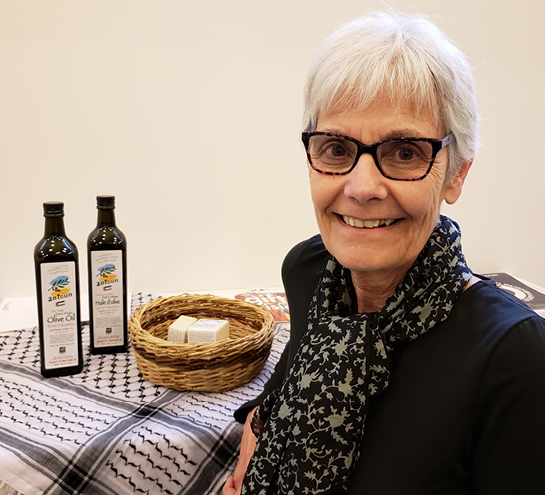
I was inspired to help refugees after hearing my father speak about how he benefited from English classes for newcomers when he was very young. I’ve been personally involved in sponsoring refugees since the early 1980s. Over the years we’ve sponsored people from many different countries such as Iran, Ethiopia, Iraq, stateless Palestinians, Somalia, Bosnia and others. We’ve been lucky to have had such a supportive response to resettling refugees from the city of Ottawa and its people.
Some of the most memorable moments are when you see things coming together, people moving forward: getting a job, learning the language, being independent. It’s a great feeling knowing that they will succeed in their new home.
Sponsoring is labour intensive, but it’s such a joy. It’s something that is doable. Anybody who feels they have a responsibility to be kind can help sponsor refugees.
Our job as sponsors is to help refugees become independent within a year, and sometimes that can be a challenge. It is much easier to do things for newcomers than to help them to do it on their own. Sponsors may also feel they’ve failed if a refugee ends up getting a job, but it is in a different city. They should actually be happy and realize this means they’ve succeeded in their task of assisting the refugee to become independent.
To this day, I can’t imagine my life without sponsoring. I’ve learnt so much and I take nothing for granted. In my late 70s, I’m still very active in sponsoring refugees, and I volunteer for the Refugee Advisory Group for The United Church of Canada. This group provides support to people who wish to sponsor, answers questions about the process and helps host refugee sponsorship program workshops.
We, as Canadians, are in a position to be able to help refugees, and are lucky to live in a country that is so diverse and multicultural. I’ve made many lasting friendships with those we’ve sponsored over the years. We are all on a journey in life, and it’s nice to have companions on the way.
Don and Thérèse Smith: Sponsoring refugees - 40 years and 2 provinces
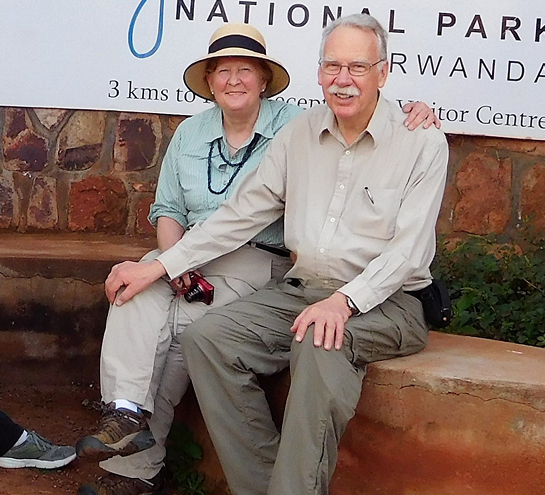
In the late 70s, we were part of the Social Concerns Committee at St-Michael’s Parish in Quebec City. We had the idea of sponsoring refugees after reading about the Indochina refugee crisis in the newspapers. The crisis affected Vietnam, Cambodia and Laos. There were 17 of us who privately sponsored 2 groups: a family of 7 from Laos and a family of 6 from Cambodia. We didn’t know what to expect as this was our first time sponsoring, but both families thrived and quickly got jobs outside the city not long after landing. We kept in touch with them for several years and even attended one of their weddings! Later in the 80s, we were involved with 2 more families from Hungary and former Czechoslovakia.
My wife and I then moved to Ottawa in the late 90s and got involved at the Church of St-John the Evangelist. We again began sponsoring and working with refugees; altogether we were involved with more than 100 refugee newcomers between 2002 and 2014 from diverse countries such as Burundi, Rwanda, Bhutan, Ethiopia, Sudan, Iraq, Iran and Afghanistan. We’ve become close to many of the families who are now Canadian citizens. We’ve watched them grow and become nurses, international human rights advocates, restaurant owners, child care workers and public servants. Sponsoring refugees opened a whole new world for us and has changed our lives forever.
The most challenging part of sponsoring refugees is managing expectations. It’s difficult for us to see highly educated people, such as engineers and doctors, have to start again in Canada as pizza delivery drivers and sandwich makers. Don’t get me wrong, they don’t complain and are extremely grateful for this opportunity at a new life. It’s never easy to resettle into a new country. But people that have come to Canada as refugees have changed this country for the better. They’ve lived through difficult times, but are now making big contributions and have a strong drive to succeed.
We are still sponsoring refugee families to this day and are happy to do it; they are changing our lives for the better.
Bill Temple: Sponsoring Ethiopian Refugees in Winnipeg
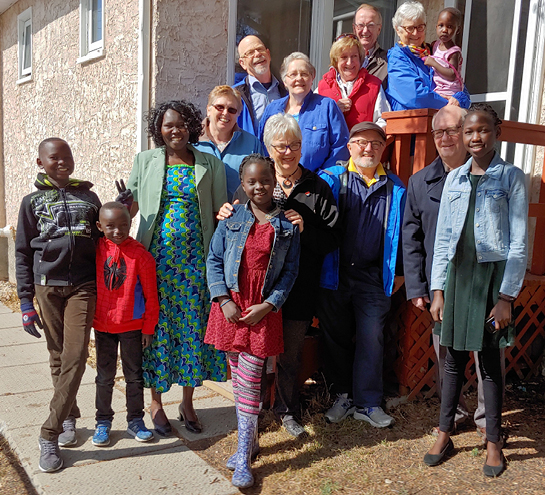
I decided to get involved in refugee sponsorship after our Pastor brought it up to our congregation one day. It was during the Syrian refugee crisis, where we kept seeing news reports of drownings in the Mediterranean Sea. I just knew I had to be part of our Presbytery’s decision to sponsor a refugee family. Our group of sponsors grew over time and we become close friends; the support from the Presbyterian Church community was just phenomenal. We ended up with a group of 12 sponsors from 4 different congregations of the Presbyterian Church in Winnipeg. We felt as though we were putting our efforts into something worthwhile.
We ended up sponsoring an Ethiopian single mother of five children. It was difficult for them at first, not knowing the language and the culture. The mother, didn’t speak the language and her eldest daughter, who spoke fluent English, was the translator for the whole family. She even helped them through the immigration process. They landed in the fall of 2017. A few weeks after their arrival, we were walking back from a park down the street and the eldest child turned to me and said, “Why are the leaves falling, are the trees sick?
” I reassured her that the trees were not sick, but just preparing for winter. This made me realize that they were not only new to the country, but also new to everything including the environment, and they would soon be encountering snow for the first time. The most challenging part of the process was finding affordable housing. For a family of six, it can be tough, but thankfully we were able to find something suitable in the end. Today, the family is doing well. The mother is taking English classes; the kids are in school and integrating well into the community. We are still very much involved in their lives, we give them rides and bring them shopping.
Refugees are people like the rest of us: they all have desires and fears, and all they need is a little help from us. As Canadians, we are privileged to live here, and I believe that with that privilege comes a responsibility to help others.
The advice I would give to people thinking of sponsoring would be to get your group together early, do your research on the Private Sponsorship of Refugees program and get people from your community, who have already sponsored refugees, to guide you. It was a very rewarding experience and I hope we do it again in the near future.
Jasmine Somogyvari: A community sponsoring Liberian Refugees
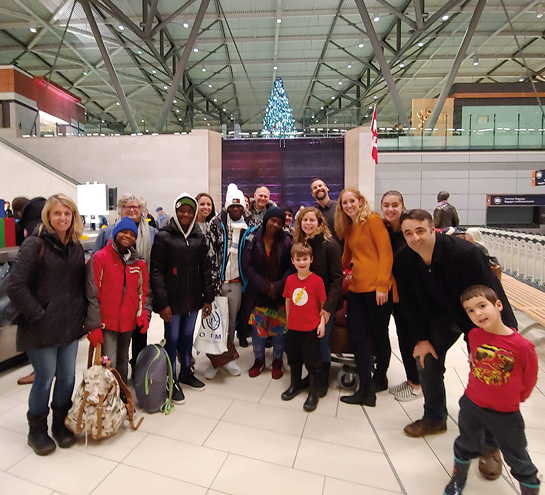
Last year, our community decided to sponsor refugees from Liberia through the BVOR program. We live in the Chapel Hill area of Orleans. The lead sponsor had been thinking about sponsoring refugees for many years as a way of giving back to the community and reached out to a community services group in Ottawa to inquire about the sponsorship process. He decided post an expression of interest to the community and seek interested volunteers in the area. He asked neighbours, family and friends to help with the process. This included pre-arrival preparations, fundraising and helping the family when they got here. A few months later, he received word that a refugee family living in Ghana had been identified – a mother, two sons and a daughter.
Their arrival at the Ottawa airport in November was one of the most meaningful moments of the experience. They showed up with some winter clothing but little else. They marveled at the snow which had already began to fall that night. Since then, members of our community have spent much time with the family and it has not only made us appreciate what we have in Canada, but has also allowed us to forge bonds with these newcomers who are so incredibly happy to be here and have a fresh start. We continue to live meaningful moments with the family since their arrival and we feel a sense of pride in the progress they have made so far as they eagerly integrate in Canada.
There are many amazing things about Canada – and I think a big one is the fact that we are an open and welcoming society that wants to help others. The fact that we are able as a community to play a role in the refugee program is particularly unique and we would recommend it to enrich communities like ours across the country.
Jake and Louise Buhler: Sponsoring refugees in Saskatchewan
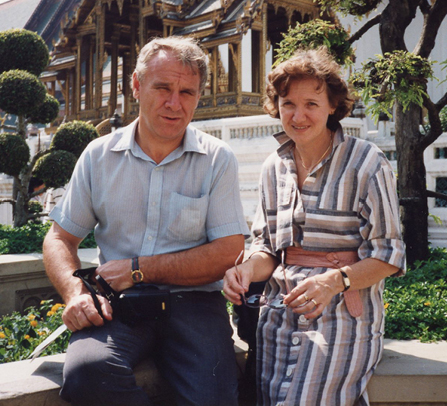
My parents came to Canada as refugees from Soviet Union-occupied Ukraine in the 1920s. Most of my parent’s friends were also refugees. It was part of our DNA – that’s why we started sponsoring refugees early on. We knew it was the right thing to do.
From 1979-1990, the Mennonite Central Committee Canada sponsored 5,000 Indochinese refugees across Canada. The Osler Mennonite church in Saskatchewan, was one of many churches that participated in the sponsorship program. In total, our little community sponsored 4 families from Laos, Vietnam, Colombia, and most recently, Syria.
For refugees who came to Canada in the 1980s, it was a tough time. Interest rates were quite high and housing was expensive. One family couldn’t afford a home, so our church decided to fundraise and bought them a house. We gave them the opportunity to repay the church at a fraction of the interest rate over 10 years. We were glad to be able to help them, given the tough situation we were all in.
The most challenging part about coming to Canada for the sponsored refugees was settling into their new country. Saskatchewan was very different then – not as diverse as it is now. As Canadians, we didn’t know who the Laotian people were, and they didn’t know who we were either. We were helping human beings in their most vulnerable moments. We learned about each other over time. It’s completely changed now, as we’ve become a multicultural community and province. We’ve built special bonds with these families and kept in touch over the last 40 years. Sponsoring not only changed their lives, it changed ours too.
Reverend Arie Van Eek: Sponsoring refugees since 1978
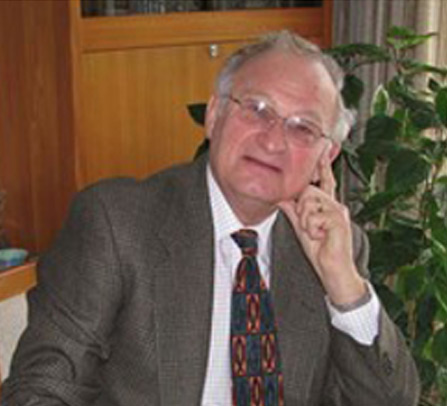
We started sponsoring refugees as soon as the Private Sponsorship of Refugees (PSR) program was put in place. We were quite eager to start our sponsorship responsibilities. We had been following the South East Asia crisis, which had been going on for many years, and finally, we were able to help.
I was the first national representative of our church to lead the sponsorship project. With over 200 churches involved, the Christian Reformed Church in North America has sponsored well over 7,000 refugees Canada-wide since the 70s. Refugees have come from all parts of the world; South East Asia, Africa, and Eastern Europe.
I’ve learned many things over the years with this sponsorship experience. I’ve learned to be grateful to work and live in a country like Canada. I’ve learned to exercise a degree of sensitivity with refugees, as they are new to the Canadian experience and we don’t know what they’ve witnessed in the past. We have so many opportunities in Canada, and I’m happy to be sharing them with these refugees that have now become Canadian citizens.
Jon Isaak: Sponsoring a family after decades in a refugee camp
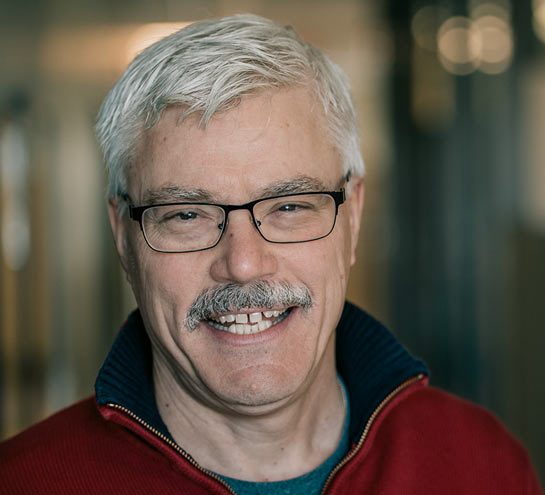
There were three reasons why I wanted to sponsor refugees. First, from a theological perspective, it is an opportunity to serve our humanity, to help people who are suffering. Second, from a personal connection, my grandparents came to Canada as refugees in the 1920s, so I wanted to give back. Finally, it was a local tradition for my church, which started sponsoring refugees in the 1970s.
In September last year, we sponsored a Nepalese family that had been in a refugee camp for decades. The family’s eldest child, at 25, had spent her entire life in the camp. When civil war broke out in the 1990s, many Nepalese who used to work in Bhutan had to leave the country and were held in refugee camps. Thousands upon thousands were held there for decades, and some were resettled to Canada and the United States.
Our sponsorship team consisted of five people, and we worked very well together. We each had a job. We had a nurse who helped the family with their doctors’ appointments, a person interested in sports who outfitted them with bicycles and sporting goods, and another team member was good at finding household items such as beds and dressers. Our team was and continues to be truly committed to this. My role as team lead was helping the family with forms; from permanent resident cards to social insurance number applications, I navigated through all of it with them.
The family already had extended family here in Winnipeg, which helped them a great deal. Starting over is more challenging the older a person is, but thankfully the family members are all thriving with their new lives. It feels good that we were able to help. Refugees bring vitality, diversity and energy to our community.
Dominique Poulin: Les Marraines solidaires
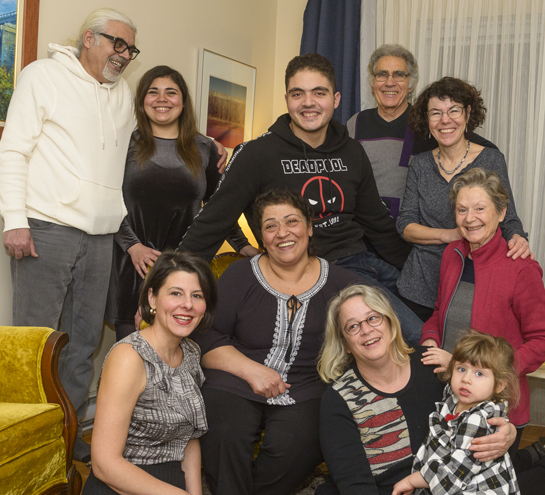
I live in Montréal, and I have sponsored 2 refugee families since 2015. The first family was sponsored with the help of my relatives in the Outaouais region, and the second family was sponsored with the help of my work colleagues in Montréal. In an effort to better identify ourselves in our sponsorship endeavours, and since we are 4 women and 1 man, we decided to call ourselves les Marraines solidaires (Godmothers in Solidarity).
The crisis in Syria left us all a little shaken up; we felt powerless in the face of the situation. We wanted to take action together, and we found a way to make a difference by sponsoring refugees. With the help of my colleagues, we succeeded in launching a fundraising campaign in our community.
We experienced a wave of emotions. In the beginning, it was a long process, and we waited for over a year before our Syrian family arrived. However, once they did arrive, the relationships we formed were precious. We were lucky because our communication was facilitated, and the family knew English. It’s a pleasure to watch them grow, integrate into the community and learn French. The children are now in CEGEP and are flourishing. My life has been enriched because of them, and I am grateful for that.
Page details
- Date modified: